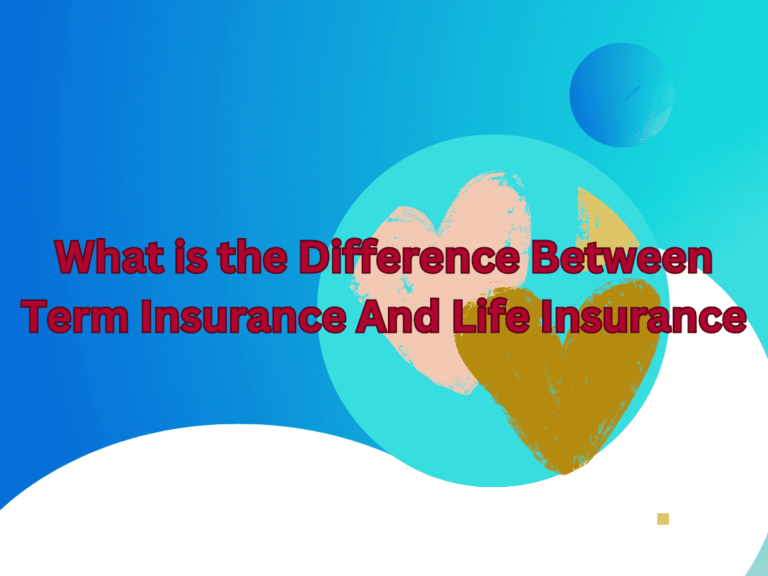Ever asked yourself, “What does life insurance cover?” Do you wonder whether life insurance provides financial protection against the risk of life’s unforeseen predicaments? Guess what, you’re not alone. In this article, we will delve into the coverage, benefits, and structure of life insurance, providing you with the information you need to make informed decisions for your financial future. So, let’s unravel this question: What does life insurance cover?
Defining Life Insurance
Before dissecting the intricacies of life insurance coverage, it would only be fair to grasp its fundamental concept. Life insurance is a legally binding contract between an individual (the policyholder) and an insurance company. In this agreement, the insurer assures to provide a predetermined sum to the beneficiaries upon the policyholder’s death in return for regular premiums.
Life Insurance: What Does It Cover?
The simplest answer to the question, “What does life insurance cover?” is that it offers financial cover for the beneficiaries in case of the policyholder’s death. However, insurance packages are like snowflakes, no two are entirely alike. Depending on the type of policy you choose, life insurance can cover a myriad of costs, including:
Funeral expenses
It sounds bleak, but end-of-life expenses can be an awfully heavy financial burden. A life insurance policy covers these costs, sparing grieving loved ones from financial anxiety on top of emotional distress.
Mortgages and Other Outstanding Debts
Leaving your family with the freedom of a debt-free life is one of the noblest gifts you could give. Life insurance covers any outstanding mortgages, loans, or balances, ensuring your beneficiaries don’t inherit financial burdens.
Income Replacement
Your dependents might rely on your income for their livelihood. Life insurance serves as an income replacement so that your loved ones maintain their standard of living even after you’re gone.
Education Costs
Educational expenses are skyrocketing. A good life insurance policy can cover the tuition costs for your children, ensuring their studies aren’t affected by your untimely demise.
Healthcare & Medical Expenses
Some life policies offer coverage for critical illness, long-term care, or disability costs, allowing you to meet your medical needs without debilitating your finances.
Coverage for Death
Life insurance primarily covers the policyholder’s death, ensuring financial support for loved ones left behind. The death benefit is paid out to beneficiaries, helping them manage expenses and maintain their quality of life.
Accidental Death Benefits
Many life insurance policies include coverage for accidental deaths. This additional benefit ensures an extra payout if the policyholder dies due to an accident, providing an added layer of protection.
Terminal Illness Coverage
Life insurance can also provide coverage for terminal illnesses. If diagnosed with a terminal illness, the policyholder may access a portion of the death benefit to cover medical costs or other financial needs.
Suicide Clause
It’s essential to be aware of the suicide clause in life insurance policies. Typically, if the policyholder dies by suicide within a specific period after policy inception, the death benefit may be limited. Understanding this clause is crucial for policyholders and their beneficiaries.
Exclusions and Limitations
While life insurance offers valuable coverage, certain situations may be excluded. Common exclusions include death due to risky activities or pre-existing health conditions. Understanding these limitations is vital for policyholders.
What Is Life Insurance? How It Works And How To Buy A Policy
Policy Riders
Policyholders can customize their life insurance coverage with optional riders. These riders provide additional benefits, such as accelerated death benefits for chronic illnesses or additional coverage for accidental deaths.
Choosing the Right Coverage
Selecting the right life insurance coverage involves considering factors such as financial goals, family needs, and budget. Tailoring a policy to individual circumstances ensures optimal protection and peace of mind.
Understanding Different Types of Life Insurance
Knowing what life insurance covers involves understanding the various types of life insurance policies. This implies that the breadth of coverage can vary from one policy to another. The two primary types are term life insurance and whole life insurance.
Term Life Insurance
Term life insurance offers coverage for a specified term, providing a payout if the policyholder passes away during that period. It is a cost-effective option, ideal for individuals seeking coverage for a specific duration.
Whole Life Insurance
Whole life insurance, on the other hand, provides coverage for the entire life of the policyholder. It combines a death benefit with a cash value component that grows over time, offering lifelong protection.
Frequently Asked Questions
What is not covered by life insurance?
While life insurance encompasses many costs, certain exceptions like suicide within the first two years, acts of war, fraud, and deaths related to extreme sports or hobbies may not be covered.
Do life insurance policies cover natural death?
Yes, typically life insurance covers natural death, but the specifics often depend on the terms and conditions of the policy.
As a final point, life insurance is a significant financial tool that provides peace of mind knowing your loved ones will be protected financially in your absence. It can cover everything from funeral costs to educational expenses, mortgages, and income replacement. With an array of choices, it’s important to research thoroughly and consider what kind of coverage you need most to choose the right life insurance policy for you.







